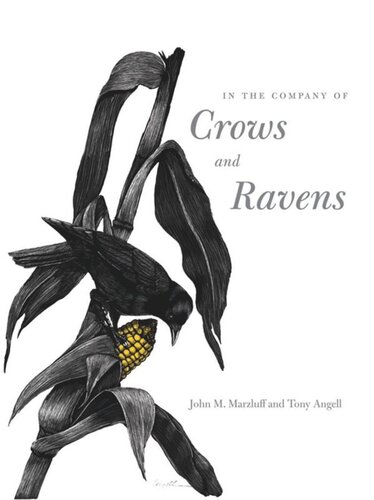

Most ebook files are in PDF format, so you can easily read them using various software such as Foxit Reader or directly on the Google Chrome browser.
Some ebook files are released by publishers in other formats such as .awz, .mobi, .epub, .fb2, etc. You may need to install specific software to read these formats on mobile/PC, such as Calibre.
Please read the tutorial at this link: https://ebookbell.com/faq
We offer FREE conversion to the popular formats you request; however, this may take some time. Therefore, right after payment, please email us, and we will try to provide the service as quickly as possible.
For some exceptional file formats or broken links (if any), please refrain from opening any disputes. Instead, email us first, and we will try to assist within a maximum of 6 hours.
EbookBell Team

0.0
0 reviewsCrows and people share similar traits and social strategies. To a surprising extent, to know the crow is to know ourselves.”from the Preface
From the cave walls at Lascaux to the last painting by Van Gogh, from the works of Shakespeare to those of Mark Twain, there is clear evidence that crows and ravens influence human culture. Yet this influence is not unidirectional, say the authors of this fascinating book: people profoundly influence crow culture, ecology, and evolution as well.
John Marzluff and Tony Angell examine the often surprising ways that crows and humans interact. The authors contend that those interactions reflect a process of cultural coevolution.” They offer a challenging new view of the human-crow dynamica view that may change our thinking not only about crows but also about ourselves.
Featuring more than 100 original drawings, the book takes a close look at the influences people have had on the lives of crows throughout history and at the significant ways crows have altered human lives. In the Company of Crows and Ravens illuminates the entwined histories of crows and people and concludes with an intriguing discussion of the crow-human relationship and how our attitudes toward crows may affect our cultural trajectory.